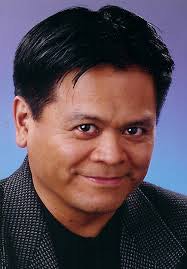 Emil Guillermo
Emil GuillermoWhile people point to Donald Trump tapping the anger of the American electorate, you always know that, in the political physics, Newton’s third law still applies, that for “every action, there is an equal and opposite reaction.”
The positive part about Donald Trump’s candidacy is the awakening of a disillusioned young African-American voice in the electorate.
And North Carolina was key.
That’s where Sierra K. Thomas was awakened.
Thomas is a student at Virginia State University in Petersburg, Virginia, who gave her first person account to the Washington Post.
“As I sat in the Crown Coliseum in Fayetteville, N.C., earlier this month, waiting for Donald Trump’s rally to start, my adrenaline began to rush. I knew I could be hurt for what I was about to do,” she wrote.
“I’d driven three hours by myself that morning from college in southern Virginia to protest his campaign. For months, I’d been reading and watching coverage of Trump’s rise. His rallies had become spaces where people felt comfortable being openly racist and hateful, because he allowed them to. And with his ugly rhetoric about Muslims, Mexicans and ‘the old days’ before political correctness, he has encouraged it.”
And then she heard the voice in her head and her heart that was like a call to action.
“I knew I had to do something,” she wrote. “I couldn’t just sit and watch someone who is trying to be our president incite violence. I could not let the progress people have made in learning to love and accept one another go to waste. Trump is playing on the emotions and fears of this country to serve himself. His defenders say his campaign has nothing to do with racism, but what I saw and heard in Fayetteville — and what’s happened at other events — prove they’re wrong.
“If Trump makes it to the Oval Office, I’m afraid of what will happen to this nation. I want to be a teacher after I graduate; what kinds of lessons would children learn from a president who says it’s okay to kill the families of alleged terrorists and to ban people from the country because of their religion?”
At Fayetteville, Thomas saw the crowd get excited by Trump, and then she heard the commotion when a Trump supporter sucker punched Trump protestor Rakeem Jones.
Thomas described how seeing Trump inspire the crowd’s anger made her react.
“He made no attempt to stop the violence but instead egged it on. Then he started that whole ‘pledge to vote for me’ stunt, and I’d had enough. I felt my legs move.
“Here we go! Stay focused. Ignore them. Don’t be afraid.
“It was as if my body was on autopilot. The next thing I knew, I was in the middle of the aisle on the steps, one fist in the air, yelling, ‘BLACK LIVES MATTER!’
“No way you’re going to punch us and we’re going to sit idly by.
‘BLACK LIVES MATTER!’
“No way MY president is going to register people because of their looks, race or religion.
‘BLACK LIVES MATTER!’”
Thomas got a reaction from others who started yelling and booing her and yelling “all lives matter.” But it didn’t quiet Thomas. It only made her stronger.
“I wanted to tell them that of course ‘all lives matter’ but that they weren’t dealing with the same struggles black people were — police brutality, an unfair justice system, generational poverty. The fact that our country has ignored our problems for too long. That we wouldn’t accept the status quo anymore.”
Thomas talks about showing no fear, despite being grabbed and pushed and called the N-word.
But her example should be an inspiration for young and old.
Those too old to stand. And those too young to know why we all should.
Over the last few years, people of color have celebrated the 50th anniversary of Civil Rights, of the March on Washington, of Selma, of the Voting Rights Act.
And just when you think we’re at the finish line, the field gets longer. 100 yards isn’t enough. Not for Donald Trump.
Or everyone starts moving in reverse.
But this isn’t a comedy.
And if we’ve learned our history lessons, we all know what to do.
Sierra Thomas knew what to do. She didn’t fail that history test.
Emil Guillermo is a journalist and commentator who writes on race and society for the Asian American Legal Defense and Education Fund. Follow him at https://www.aaldef.org/blog/.





















